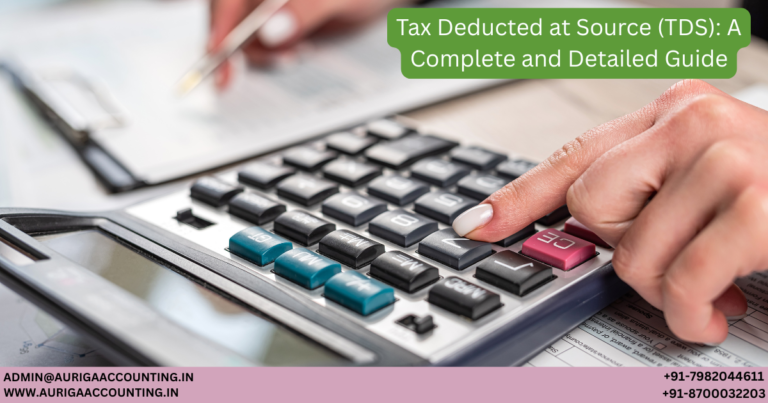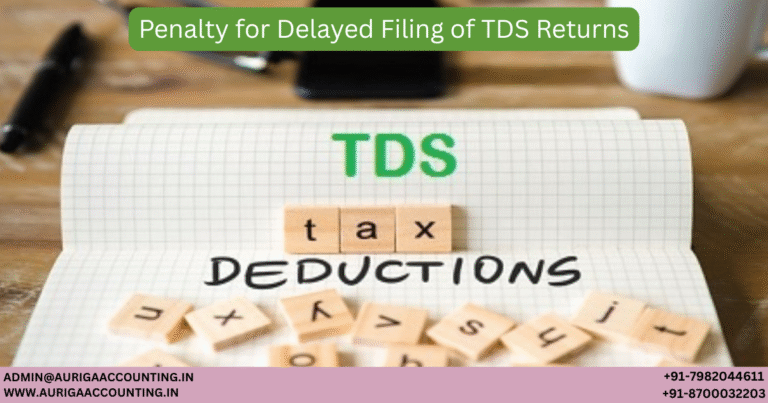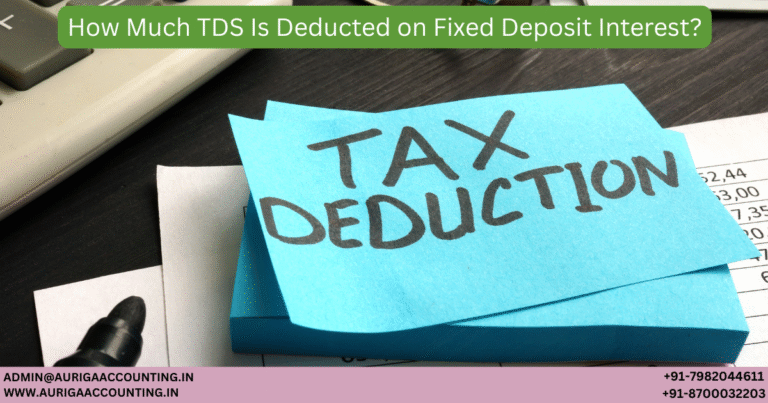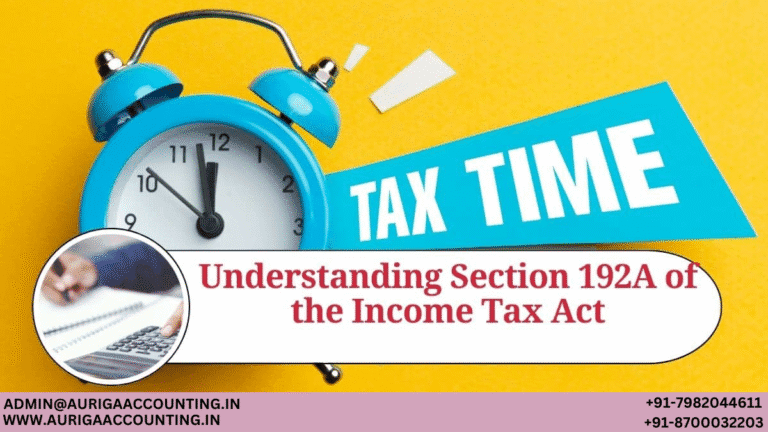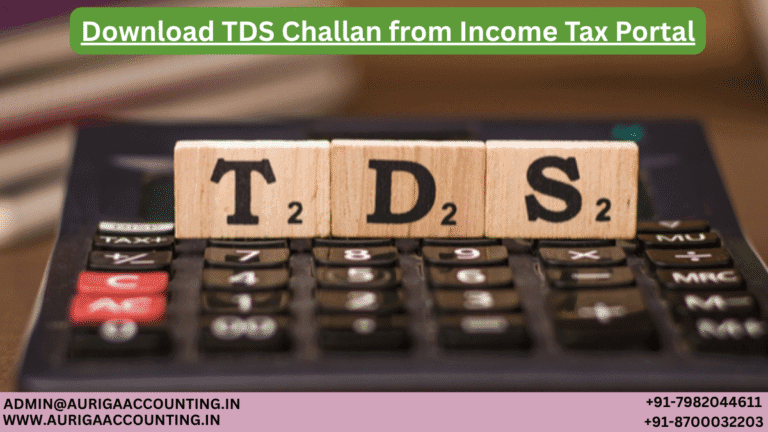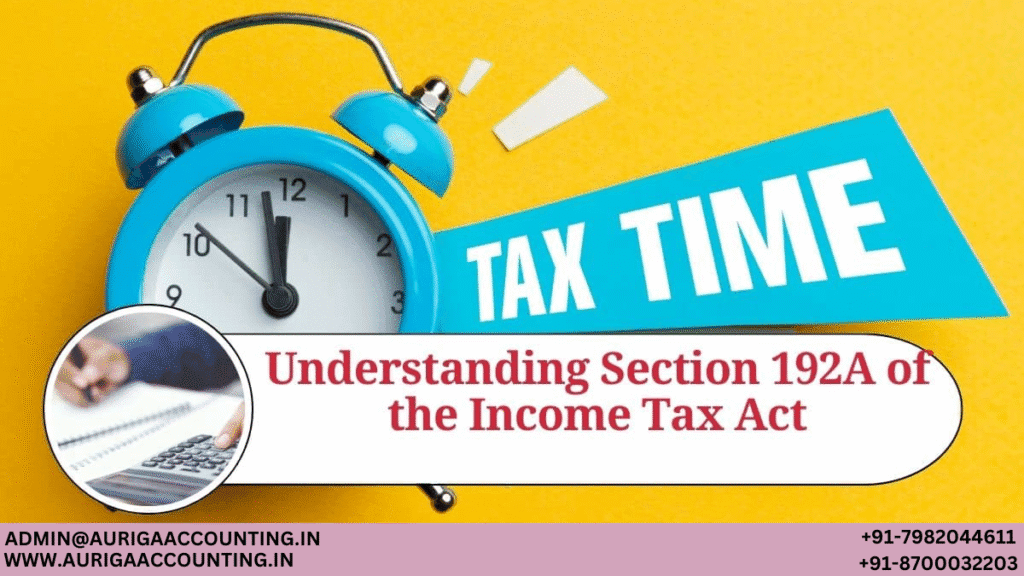
Understanding Section 192A of the Income Tax Act
Introduction
ToggleThe Employees’ Provident Fund (EPF) is a long-term savings scheme aimed at helping individuals build a secure retirement corpus. While it promotes disciplined savings, withdrawals—especially premature ones—can attract tax implications under Section 192A of the Income Tax Act. This section mandates Tax Deducted at Source (TDS) on early EPF withdrawals under specific conditions. However, certain exemptions and deductions are available that can significantly reduce your tax burden if used wisely.
Understanding Section 192A is essential for managing EPF withdrawals efficiently and ensuring compliance with income tax regulations. This article offers a comprehensive overview of Section 192A, including applicable TDS rates, exemption eligibility, deduction thresholds, and step-by-step compliance procedures.
Need assistance with TDS filings? Connect with the experts at IndiaFilings for reliable, hassle-free support and accurate submission.
What is Section 192A of the Income Tax Act?
Section 192A of the Income Tax Act governs the Tax Deducted at Source (TDS) on premature withdrawals from the Employees’ Provident Fund (EPF). According to this provision, introduced through the Finance Act of 2015, TDS must be deducted under the Employees’ Provident Fund Scheme, 1952 if an employee withdraws their EPF balance without fulfilling the conditions laid out in Rule 8, Part A of the Fourth Schedule.
The tax must be deducted at the time of payment and subsequently deposited with the government by the responsible deductor within seven days of the end of the month in which the deduction was made. For TDS deducted in March, the due date for deposit is on or before April 30.
Additionally, deductors are required to file quarterly TDS returns using Form 26Q, as per the following schedule:
| Quarter | Due Date |
|---|---|
| April to June | 31st July |
| July to September | 31st October |
| October to December | 31st January |
| January to March | 31st May |
Understanding Section 192A ensures that employers and EPF authorities remain compliant with TDS obligations on EPF withdrawals.
TDS Rate on Provident Fund Withdrawals
Under Section 192A of the Income Tax Act, 1961, the TDS rate on premature withdrawal from the Employees’ Provident Fund (EPF) is 10%, provided the employee has submitted a valid PAN.
However, no TDS is deducted if the employee submits Form 15G (for individuals below 60 years) or Form 15H (for senior citizens), declaring that their total taxable income is below the exemption limit.
Situations Where TDS Is Not Applicable
TDS is not applicable under the following conditions:
Service Period Exceeds Five Years
If the employee has completed more than five years of continuous service, no TDS is deducted, and submission of PAN is not mandatory under Section 192A.Employment Termination Due to Special Circumstances
If the termination of employment occurs due to circumstances such as:Medical illness or disability
Closure or discontinuation of the business
Completion of a specific project or assignment
In such cases, TDS will not be deducted, even if PAN is not submitted, as per the provisions of Section 192A.
TDS Deduction Threshold for EPF Withdrawals
Under Section 192A of the Income Tax Act, TDS is applicable on EPF withdrawals only if the total withdrawal amount exceeds ₹50,000.
However, TDS is not deducted in the following circumstances:
Service Tenure of 5 Years or More: If the employee has completed at least five years of continuous service, the EPF withdrawal is exempt from TDS.
Withdrawal Amount is ₹50,000 or Less: No TDS is deducted if the total withdrawal amount does not exceed ₹50,000, regardless of the service duration.
Transfer to National Pension System (NPS): If the EPF balance is transferred directly to an NPS account, the transaction is not treated as a withdrawal and is thus exempt from TDS.
Withdrawal Due to Unforeseen Circumstances: No TDS is applied if the withdrawal results from reasons beyond the employee’s control, such as:
Medical emergencies
Business closure
Project or contract completion
Understanding these exemptions is essential to ensure that TDS is deducted correctly or not deducted where exclusions apply, in line with Section 192A of the Income Tax Act.
TDS Exemptions Under Section 192A of the Income Tax Act
While Section 192A mandates TDS on premature withdrawals from the Employees’ Provident Fund (EPF), several key exemptions allow employees to avoid TDS deductions. The following situations are exempt from TDS under Section 192A:
Withdrawal Amount Below ₹50,000
If the total EPF withdrawal is ₹50,000 or less, no TDS will be deducted—regardless of the length of service.Completion of 5 Years of Continuous Service
Employees who have completed at least five years of continuous service are not subject to TDS, even if the withdrawal amount exceeds ₹50,000.EPF Transfer to Another PF Account
When switching jobs, if the EPF balance is transferred to a new PF account, this is not considered a withdrawal—hence, no TDS is applicable.Employment Termination Due to Unforeseen Circumstances
No TDS is deducted if the employee’s service ends due to factors beyond their control, such as:Illness or medical incapacity
Business or project shutdown
Completion of a contract or assignment
Submission of Form 15G or 15H
If the employee’s total income falls below the taxable threshold, and they submit Form 15G (for individuals below 60 years) or Form 15H (for senior citizens) along with PAN, TDS will not be deducted.No PAN Required for Service Over 5 Years
If the employee has completed more than five years of service, submission of PAN is not mandatory, and TDS is not applicable.
TDS Deduction Process on EPF Withdrawals under Section 192A
The process of deducting TDS on EPF withdrawals, as outlined in Section 192A of the Income Tax Act, is simple and systematic:
Who Deducts TDS:
TDS is deducted at source by the designated entity, which may be the employer or the Employees’ Provident Fund Organisation (EPFO).Deposit Deadline:
The deducted amount must be remitted to the government within seven days from the end of the month in which the tax was deducted.Exception: For TDS deducted in the month of March, the deadline for deposit is on or before April 30th.
Quarterly Return Filing:
TDS deductors are required to file quarterly returns using Form 26Q within the following due dates:Quarter Filing Due Date April to June 31st July July to September 31st October October to December 31st January January to March 31st May.
Scenarios Where TDS Is Applicable on EPF Withdrawals Under Section 192A
Section 192A of the Income Tax Act outlines specific situations in which Tax Deducted at Source (TDS) must be applied to withdrawals from the Employees’ Provident Fund (EPF). The key scenarios include:
1. Premature Withdrawal:
TDS is applicable if an employee withdraws more than ₹50,000 from their EPF account before completing five years of continuous service.2. Job Change with Withdrawal:
If an employee changes jobs and transfers their EPF balance to the new employer’s account, no TDS is deducted.
However, if the employee withdraws the EPF amount instead of transferring it, and the service period is less than five years, TDS will be deducted as per Section 192A.3. Termination of Employment:
In cases where employment ends due to reasons like project completion or business closure, TDS will be deducted unless the withdrawal qualifies for exemption under Section 192A (such as in cases of ill health or other uncontrollable circumstances).4. Withdrawal After Completing 5 Years of Service:
Generally, no TDS is deducted if the EPF is withdrawn after five years of continuous service.
However, if the employee fails to submit necessary documentation (e.g., PAN or relevant forms), TDS may still be applied.
Why Providing PAN Is Crucial for EPF Withdrawals
When withdrawing funds from the Employees’ Provident Fund (EPF), it is essential for employees to submit their Permanent Account Number (PAN). Under Section 192A of the Income Tax Act, submitting PAN ensures that TDS is deducted at the standard rate of 10%.
Failure to provide a PAN can result in TDS being levied at a higher rate of 34.608%, significantly reducing the net withdrawal amount.
Additionally, providing PAN:
Ensures that the deducted TDS is accurately reflected in Form 26AS, which is critical for filing income tax returns.
Helps in claiming refunds, if applicable, during the ITR filing process.
Aids in maintaining compliance with income tax regulations and avoiding unnecessary tax complications.
Ways to Avoid TDS on EPF Withdrawals under Section 192A
Employees can minimize or completely avoid Tax Deducted at Source (TDS) on EPF withdrawals by following these key strategies outlined under Section 192A of the Income Tax Act:
Complete a Minimum of 5 Years of Continuous Service
Ensure that your total service—whether with a single employer or through uninterrupted employment across multiple organizations—exceeds five years. In such cases, EPF withdrawals are exempt from TDS.Transfer EPF Instead of Withdrawing
When switching jobs, opt to transfer your EPF balance to the new employer’s account rather than withdrawing it. This avoids premature withdrawal and, in turn, the TDS liability.Submit Form 15G or Form 15H
If your total annual income falls below the taxable threshold, you can submit Form 15G (for individuals under 60) or Form 15H (for senior citizens aged 60 and above) along with your PAN. This declaration helps you claim exemption from TDS on EPF withdrawals.Maintain Proper Documentation
Ensure that all required documentation—such as PAN, Form 15G/H, and service records—is submitted to your employer or the EPFO. Non-compliance or incomplete paperwork can lead to TDS being deducted at a higher rate.
Key Takeaways
Section 192A of the Income Tax Act is essential in regulating TDS on premature withdrawals from the Employees’ Provident Fund (EPF). Understanding its provisions empowers employees to make well-informed financial decisions, avoid unexpected tax deductions, and remain compliant with income tax laws.
Whether you are leaving a job, retiring, or considering an EPF withdrawal, being aware of applicable TDS rates, exemption conditions, and documentation requirements can help minimize your tax liability.
For seamless compliance, you can rely on IndiaFilings’ expert services to calculate, deduct, and file your TDS accurately. Our professionals ensure end-to-end assistance with EPF withdrawals under Section 192A—so you can stay focused on your work while we take care of the paperwork.
About the Author
Rohit
Rohit is a seasoned legal writer recognized for his ability to simplify complex legal concepts into clear, practical guidance. His work empowers entrepreneurs with the essential knowledge to confidently meet legal obligations, fostering a strong foundation for compliant and sustainable business growth.




